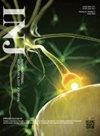Should Psychiatric Symptoms Be Evaluated in Elderly Males With Lower Urinary Tract Symptoms?
IF 1.8
3区 医学
Q3 UROLOGY & NEPHROLOGY
引用次数: 1
Abstract
Copyright © 2023 Korean Continence Society This is an Open Access article distributed under the terms of the Creative Commons Attribution Non-Commercial License (https://creativecommons.org/licenses/by-nc/4.0/) which permits unrestricted non-commercial use, distribution, and reproduction in any medium, provided the original work is properly cited. Corresponding author: Sung Chul Kam https://orcid.org/0000-0001-5403-3623 Department of Urology, Gyeongsang National University Changwon Hospital, Gyeongsang National University School of Medicine, 15 Jinju-daero 816beongil, Jinju 52727, Korea Email: kamsungchul@hanmail.net Submitted: February 3, 2023 / Accepted after revision: February 21, 2023 The world population is aging rapidly. As the life expectancy of elderly individuals increases, clinicians are focusing their attention on the management of degenerative diseases. Lower urinary tract symptoms (LUTS) are a representative degenerative symptom of old age, and their prevalence increases with age; approximately 80% of men over the age of 80 years old experience LUTS. LUTS interfere with daily functioning, and elderly males with LUTS often feel emotional discomfort, such as depressive mood and anxiety. [1,2] However, elderly patients suspected of depression accompanied by anxiety often do not complain of their mood symptoms as subjective discomfort. Instead, elderly individuals complain of various nonspecific physical symptoms. The physical symptoms include abdominal discomfort, body pain, and urinational impairment [3]. These nonspecific somatic symptoms, which are frequently evaluated in elderly depressed patients, could make it difficult to differentiate them from urological diseases in elderly male patients who complain of LUTS. A psychiatrist could misdiagnose LUTS symptoms among elderly depressed patients as psychiatric symptoms, thereby exacerbating the course of LUTS. Conversely, prejudice or indifference to patients’ psychiatric diagnosis and treatment could delay the evaluation and treatment of psychiatric symptoms in elderly patients with LUTS. In this case, it can also be evaluated as if LUTS do not improve. LUTS are broadly divided into storage and urination symptoms. In a previous study, the association between subclinical symptoms of LUTS and psychiatric symptoms was investigated. Storage symptoms such as frequent urination and nocturia were associated with depression, and voiding symptoms such as discomfort and residual urination were more strongly correlated with anxiety symptoms [1]. Additionally, as the severity of psychiatric symptoms increases, the symptoms of LUTS become more severe. In elderly males, aggravated LUTS exacerbates psychiatric symptoms such as anxiety and depressive mood [1,4]. As mentioned above, LUTS and psychiatric symptoms can interact with each other, exacerbating one another or interfering with treatment. In elderly individuals, these cumulative diseases impair overall functioning in late life. In addition, LUTS decrease the quality of life as much as diabetes and hypertension in elderly individuals, and psychiatric symptoms that are not evaluated and treated can further deteriorate the quality of life [5]. In previous community-based studies, the comorbid rate of LUTS and psychiatric symptoms, such as depression and anxiety, in males was approximately 20%–25%, and in particular, the comorbidity rate increased with age [1,6]. However, clinicians tend to overlook this issue for a couple of reasons. Clinicians should not miss the opportunity to evaluate psychiatric symptoms when diagnosing and treating elderly males with LUTS (through collaboration with a psychiatrist if necessary) and to improve the quality of life of patients.有下尿路症状的老年男性是否应该评估精神症状?
本文章由计算机程序翻译,如有差异,请以英文原文为准。
求助全文
约1分钟内获得全文
求助全文
来源期刊

International Neurourology Journal
UROLOGY & NEPHROLOGY-
CiteScore
4.40
自引率
21.70%
发文量
41
审稿时长
4 weeks
期刊介绍:
The International Neurourology Journal (Int Neurourol J, INJ) is a quarterly international journal that publishes high-quality research papers that provide the most significant and promising achievements in the fields of clinical neurourology and fundamental science. Specifically, fundamental science includes the most influential research papers from all fields of science and technology, revolutionizing what physicians and researchers practicing the art of neurourology worldwide know. Thus, we welcome valuable basic research articles to introduce cutting-edge translational research of fundamental sciences to clinical neurourology. In the editorials, urologists will present their perspectives on these articles. The original mission statement of the INJ was published on October 12, 1997.
INJ provides authors a fast review of their work and makes a decision in an average of three to four weeks of receiving submissions. If accepted, articles are posted online in fully citable form. Supplementary issues will be published interim to quarterlies, as necessary, to fully allow berth to accept and publish relevant articles.
 求助内容:
求助内容: 应助结果提醒方式:
应助结果提醒方式:


